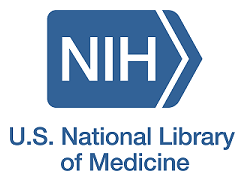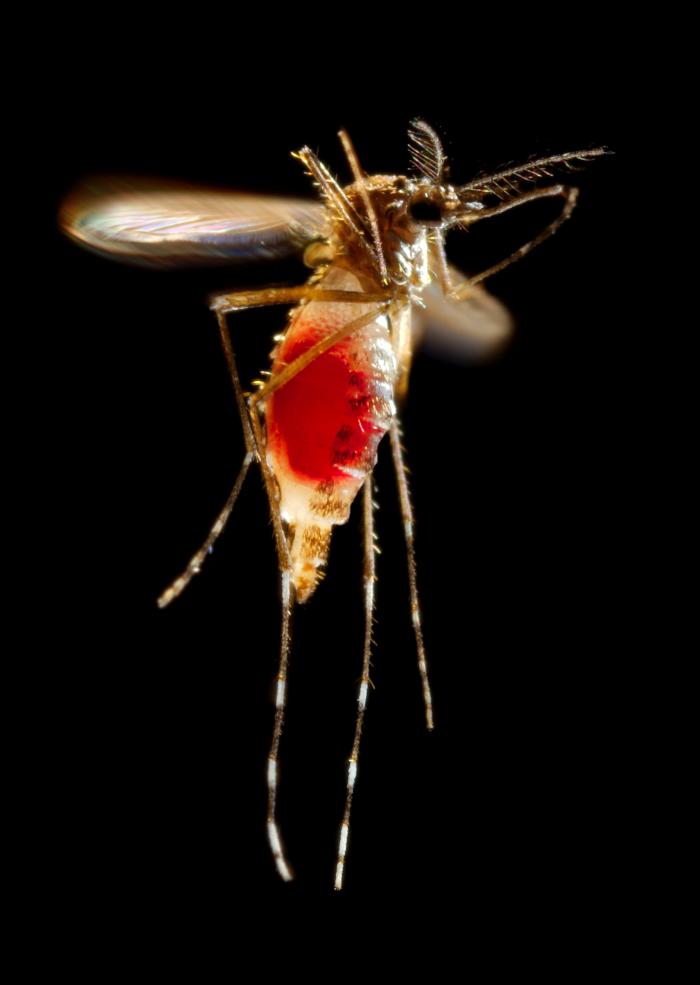

To Your Health: NLM update Transcript
Zika's challenges: 09/06/2016

Image: Courtesy of the Centers for Disease Control
Greetings from the National Library of Medicine and MedlinePlus.gov
Regards to all our listeners!
I'm Rob Logan, Ph.D., senior staff, U.S. National Library of Medicine (NLM).
Here is what's new this week in To Your Health - a consumer health oriented podcast from NLM - that helps you use MedlinePlus to follow up on weekly topics.
Zika is 69 years old, received little attention until a 2016 surge in Brazilian microcephaly cases, and the virus' outbreak leaves many unanswered treatment and prevention questions, reports a recent, interesting overview published in Science.
The review's 13 authors report it is unclear whether the current Zika outbreak in the U.S. (or in the Americas) is a result of a fundamental change in an unfortunately enduring virus (which is carried by mosquitos) or represents a chance event.
The authors write (and we quote): 'Key questions about the (Zika) virus's range, its ability to persist, and its clinical severity will be answered as the current epidemic in the Americas runs its course' (end of quote).
The authors explain Zika was discovered in 1947 (in a Uganda forest called 'Zika') and received little attention until microcephaly (a birth defect manifest by abnormal brain size) began in clusters of some Brazilian newborns during the first few months of 2016.
To date, the authors write (and we quote): 'Whether introductions of Zika result in epidemics depends on local ecology, population immunity, regional demographics and, to no small degree, random chance' (end of quote).
The authors acknowledge the Zika virus was not recognized as a significant public health issue until recently and was not studied extensively until this year.
Nevertheless, the authors note some insights and clues might be gleaned from health statistics within countries where adults and children already have been exposed to the virus. For instance, the authors explain Zika outbreaks in Yap Island (in 2007) and in French Polynesia (in 2014) suggest the virus fosters acute symptoms (such as rash, fever, pink eye), as well as the risk of birth defects. They explain in French Polynesia two years ago microcephaly (or an abnormal newborn brain size associated with significant disabilities) was estimated to occur in two out of every 10,000 cases.
The authors conclude (and we quote): 'research is progressing rapidly and over the coming months and years out understanding of the virus will undoubtedly deepen considerably' (end of quote).
Meanwhile, some background information about Zika (from the National Institute of Allergy and Infectious Diseases) is available in the 'resources' section of MedlinePlus.gov's Zika virus health topic page.
A guide for expecting parents (from the U.S. Centers for Disease Control and Prevention) is available within the 'resources' section of MedlinePlus.gov's Zika virus health topic page. A link to a question and answer based webpage about Zika and pregnancy also is available in the 'resources' section of MedlinePlus.gov's Zika virus health topic page
The World Health Organization additionally dispels rumors about Zika within a website accessible in the 'resources' section of MedlinePlus.gov's Zika virus health topic page.
MedlinePlus.gov's Zika virus health topic page also provides links to the latest pertinent journal research articles, which are available in the 'journal articles' section. Links to relevant clinical trials that may be occurring in your area are available within the 'clinical trials' section. You can sign up to receive updates about Zika as they become available on MedlinePlus.gov.
To find MedlinePlus.gov's Zika virus health topic page, please type 'Zika...Z...I...K...A' in the search box on MedlinePlus.gov's home page, then, click on 'Zika virus (National Library of Medicine).'
Before I go, this reminder... MedlinePlus.gov is authoritative. It's free. We do not accept advertising .... and it is written to help you.
To find MedlinePlus.gov, just type 'MedlinePlus.gov' in any web browser, such as Firefox, Safari, Chrome, or Explorer, on any platform.
We encourage you to use MedlinePlus and please recommend it to your friends. MedlinePlus is available in English and Spanish. Some medical information is available in 48 other languages.
Your comments about this or any of our podcasts are always welcome.
Please email the podcast staff anytime at: NLMDirector@nlm.nih.gov
A written transcript of recent podcasts is available by typing 'To your health' in the search box on MedlinePlus.gov's home page.
The National Library of Medicine is one of 27 institutes and centers within the National Institutes of Health. The National Institutes of Health is part of the U.S. Department of Health and Human Services.
A disclaimer — the information presented in this program should not replace the medical advice of your physician. You should not use this information to diagnose or treat any disease without first consulting with your physician or other health care provider.
It was nice to be with you. Please join us here next week and here's to your health!


































No hay comentarios:
Publicar un comentario